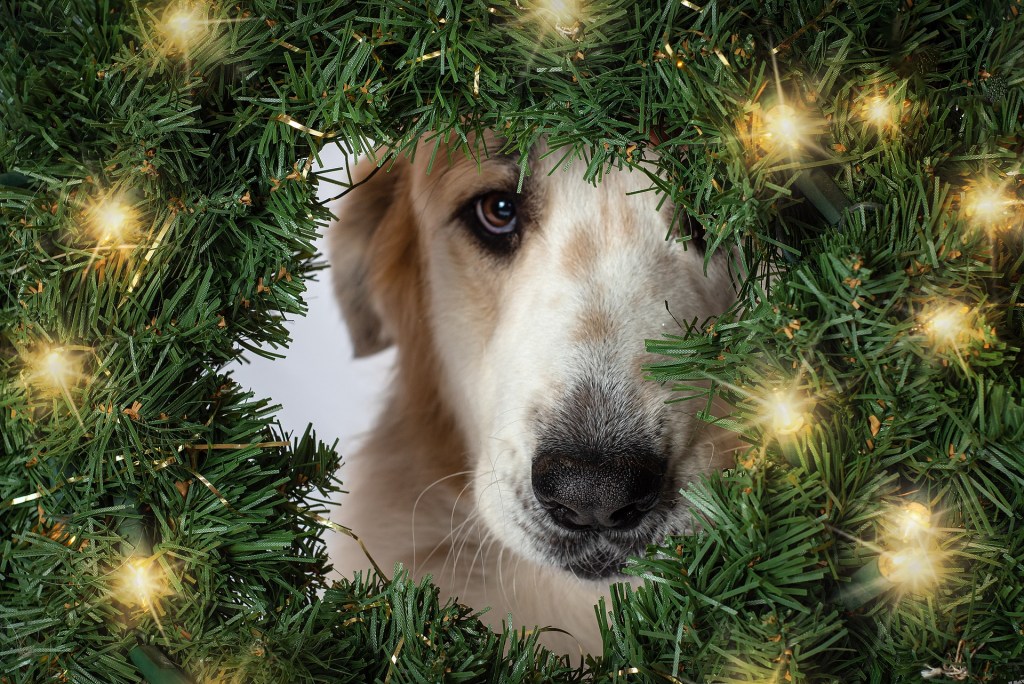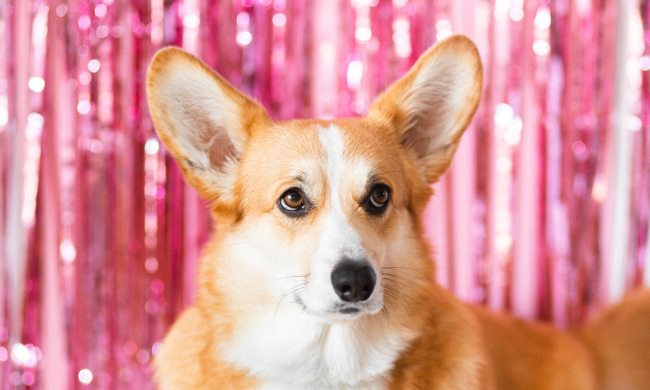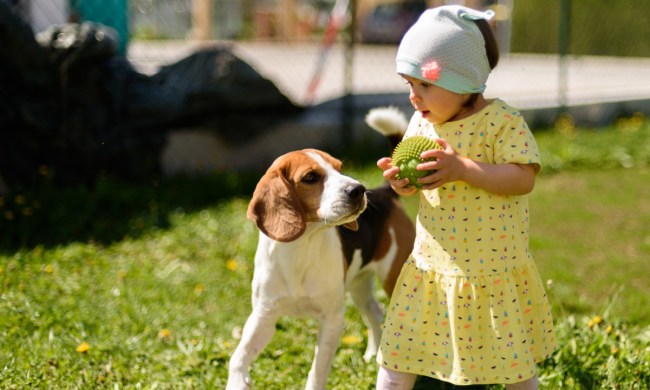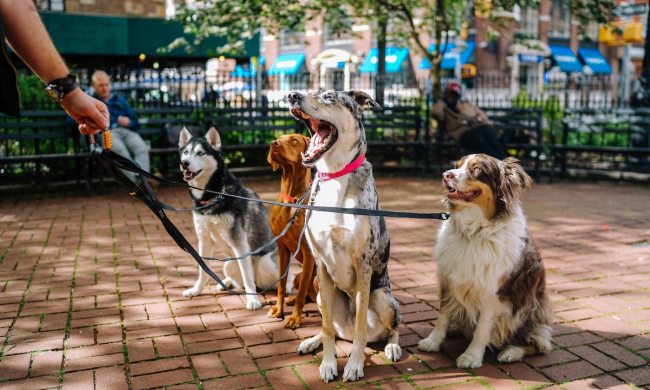The holidays are full of extra-special touches like parties, decorations, and celebrations that make the season memorable. While the holidays are a time of joy, some of those celebrations and decorations can carry hidden dangers for your pet. Being aware of these common seasonal hazards can help you to keep your furry family member safe, potentially avoiding some health issues or even emergencies. You could save on vet bills and avoid plenty of worry over your pet’s health with a little planning and attention to these holiday dangers for pets. As a result, your whole family will be able to happily and safely celebrate the holiday season this year.

Holiday dangers for pets
Here’s what to look out for:
Tinsel and pine needles
The pine needles on your tree and wreath could make your pet sick if he ingests them. They can upset your pet’s stomach, and they also contain oils that can irritate your pet’s gums and mucous membranes. Since pine needles have pointed ends, they can damage the lining of your pet’s digestive tract, and if ingested in large quantities, they can cause an intestinal blockage or even toxicity.
It’s also important to vacuum or sweep up pine needles daily. Try to avoid letting your pet into the room with your tree while unsupervised. You might need to install pet gates in doorways or around the tree itself to keep your pet from ingesting pine needles or otherwise playing with the tree.
Tinsel is equally problematic. If ingested, tinsel can create an intestinal blockage that threatens your pet’s life; he may require emergency surgery to remove it. To protect your pet, avoid using tinsel in your house altogether. It has a way of getting stuck to feet, pants, and other objects, so it’s all too easy to track it throughout the home.
Holiday party problems
Holiday parties can be big, exciting events, and make it quite easy to lose track of your pet while celebrating. During parties, when you have guests in your home who aren’t familiar with your pet, it’s easy for dangerous situations to arise.
Guests who don’t know any better might feed your pet off of their plates, potentially giving him foods that are toxic or offering him such large amounts of food that it causes digestive upset.
It’s also possible that guests might accidentally let your pet outside as they’re coming in, or that he could escape through a door or gate that’s left open.
To keep your pet safe during parties, it’s best to secure him in an area of the home where guests won’t be spending time, like your basement or a spare bedroom. If this isn’t possible, then you’ll need to be vigilant about discussing your pet’s safety with guests and carefully monitoring your pet’s location.
Holiday foods and overeating
The foods that you love to enjoy during the holidays can also pose hidden dangers for your pet. While certain foods might seem harmless, yeast, raisins, nuts, and other common holiday food ingredients can be toxic to your pet. Cooked bones can splinter in your pet’s mouth, and any sort of alcohol can be deadly.
It’s also important to remember that sudden dietary changes can upset your pet’s stomach, leading to vomiting and diarrhea. Feeding your pet a piece of turkey might seem fine, but the fat and skin can throw your pet’s digestive system out of balance and make him uncomfortable. If that turkey has been cooked with spices or foods like onions, those additives can also be toxic for your pet.
The safest bet is to avoid feeding your pet any of your human holiday foods. Instead, you can prepare your pet his own special meal by buying food toppers or holiday pet treats. If you really want to cook for your pet during the holidays, consider preparing some homemade pet treats. A little bit of turkey or chicken with the skin and bones removed is usually okay if you boil it in water without any salt or butter, but avoid feeding your pet table scraps from your own meal.

Garbage dangers
With all of the holiday parties and extra cooking comes more garbage, and that garbage can also be a major safety risk for pets — particularly dogs. If your pet eats garbage, he could ingest toxic foods that could land him in the emergency room, high-fat foods that could lead to pancreatitis, raw foods that could cause digestive upset, bones that could shatter and puncture your pet’s esophagus or digestive system, and more. It’s also possible for your pet to eat plastic wrap, ribbons, and other objects that can cause obstructions and even kill him.
Make the extra effort to prevent your pet from being able to access the garbage this holiday season. Remove full garbage bags promptly and be sure they’re secured in a pet-proof dumpster or garbage can outside. It’s best to keep your pet out of the kitchen entirely, but if you can’t do that, secure your kitchen garbage in a cabinet that your pet can’t access.
‘Tis the season for putting safety first
When we celebrate the holidays, we introduce many extra risks for our pets without even realizing it. Unfortunately, many pet owners don’t discover these risks until it’s too late and their pets have already wound up in trouble. You don’t want to spend the holidays worrying about your pet’s health, especially when so many of these common holiday dangers are easy to prevent. As you plan out your celebrations this year, think about the steps you’ll need to take to keep your pet safe. That way, you and your whole family can enjoy a happy, safe holiday season full of memorable festivities.


